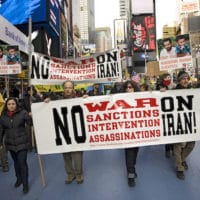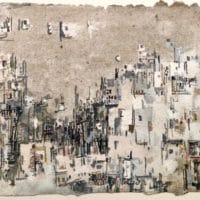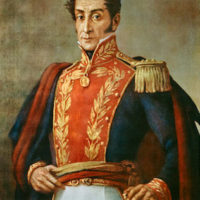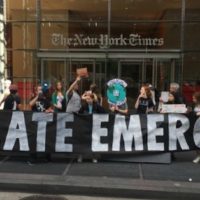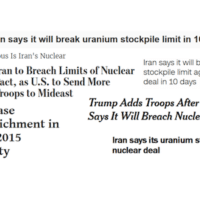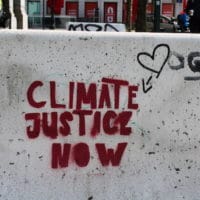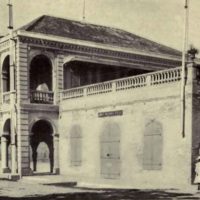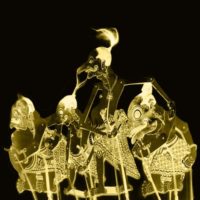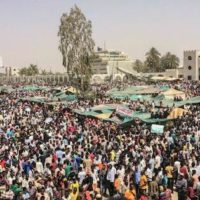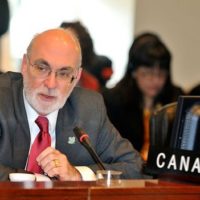-
Imperial overreach in Iran
In the last week of June 2019, as this article was being written, tensions between the U.S. and Iranian governments escalated sharply. On June 20, 2019, in response to aggressive U.S. actions, including the mobilization of troops, naval forces, and aerial provocations, Iran shot down a U.S. surveillance drone flying near the Iranian border.
-
The promised land
Palestine really was the Promised Land. So much so that it was promised to three different groups within a couple of years.
-
My friend is in a prison in Ecuador
This article was first published on June 10, 2019 in the Daily Hampshire Gazette. Two months ago, the police in Ecuador arrested my friend Ola Bini at Quito airport. Ola was on his way to Japan for a two-week martial arts course. He’s a software developer from Sweden who has lived in Ecuador since 2013. […]
-
It’s not just profitability: a response to Michael Roberts
Michael Roberts takes issue with my blog post “Why Stagnation,” which presented the analysis in a recent article I coauthored with Deepankar Basu. We argued that social structure of accumulation (SSA) theory can explain the current stagnation in the U.S. economy.
-
U.S. and Canada are backing an elite white minority in Venezuela
The U.S. and Canada are not supporting “the return of democracy” in Venezuela as they claim. Instead, they are following in their shameful histories of colonialism, imperialism, exploitation, illegal wars of aggression, and overthrowing governments.
-
The hybrid war against Iran
Trump might not have sent in a suite of missiles to hit Iran last week, but the United States has—of course—already opened up a certain kind of war against Iran.
-
‘Report the urgency! This is a climate emergency!’
“This is the biggest crisis in human history. What are we going to tell our children when they ask us: why didn’t we do anything to stop it while we still had time?”
-
Iran ‘violates’ nuclear deal, after U.S. ‘withdraws’
Quick question: Does the U.S. ever break, breach or violate its international agreements?
-
The path to climate justice passes through Caracas
For now the U.S. regime change agenda has been defeated as a result of the mass mobilization in April and May of the Venezuelan masses in defense of their Bolivarian Revolution, a mobilization which succeeded in marginalizing the opposition led by U.S. puppet Juan Guaido, demonstrating how pathetic his claims of legitimacy were.
-
How Wall Street colonized the Caribbean
The expansion of banks such as Citigroup into Cuba, Haiti, and beyond reveal a story of capitalism built on blood, labor, and racial lines.
-
Marta Harnecker, presente!
The international left has lost one of its most lucid intellectual, pedagogical educators and determined activists with the passing of Marta Harnecker on June 14, aged 82.
-
In Dutch still lifes, dark secrets hide behind exotic delicacies
The Dutch Golden Age led to a tremendous outpouring of still-life paintings in the 17th century. Since then, critics have generally belonged to two opposing schools of thought when it comes to interpreting them.
-
Brexit: imperialist Britain faces existential crisis
The Brexiters’ fantasy of a virile Britain freed from the straitjacket of EU regulations are crashing against harsh reality: Britain’s dependence on the European market compels it to maintain close alignment with the EU. But if it is ceases to be a member of the EU, it will have no seat at the ruling table.
-
Marx and the Dutch East India Company
In the final part of Capital, Volume I on “the so-called original accumulation”, Marx gives a dazzling overview of the often violent historical phenomena that contributed to the birth of the capitalist system, “dripping from head to foot, from every pore, with blood and dirt.”
-
Ecosocialism and a just transition
The idea of a “just transition” is appearing everywhere these days, most notably in the preamble of the 2015 Paris Climate Agreement, which refers to the need to take “into account the imperatives of a just transition of the workforce and the creation of decent work and quality jobs in accordance with nationally defined development priorities.”
-
Using Democratic institutions to smash Democratic aspirations (the Brazil model)
Brazil’s former President Luiz Inácio Lula da Silva has now been in prison since April 2018. More than four hundred Brazilian lawyers have signed a statement that expresses alarm at what they see as procedural irregularities in the case against him.
-
Two weeks after massacre, Sudanese set to reclaim the streets
“To the tyrants who believed for a while that victory was theirs, we say, our people will rise up.. to recommence the journey and complete the revolution,” the SPA said as the protesters begin preparations to escalate.
-
Still Manufacturing Consent: an interview with Noam Chomsky
Alan MacLeod interviewed Noam Chomsky via Skype on March 13, 2018, for MacLeod’s new book Propaganda in the Information Age: Still Manufacturing Consent. They discussed the origins of the classic work of media criticism (co-authored with Edward Herman) Manufacturing Consent, the role of that book’s “propaganda model” today, Google and Facebook, Donald Trump and Russia, fake news and Syria. This is a lightly edited transcript.
-
Canada hires hitman to overthrow Venezuelan government
The “Proposed Contractor” is Allan Culham who has been Special Advisor on Venezuela since the fall of 2017. But, the government is required to post the $200,000 contract to coordinate Canada’s effort to overthrow the Maduro government.
-
Technotyranny: the iron-fisted authoritarianism of the Surveillance State
“There will come a time when it isn’t ‘They’re spying on me through my phone’ anymore. Eventually, it will be ‘My phone is spying on me.’” ― Philip K. Dick

